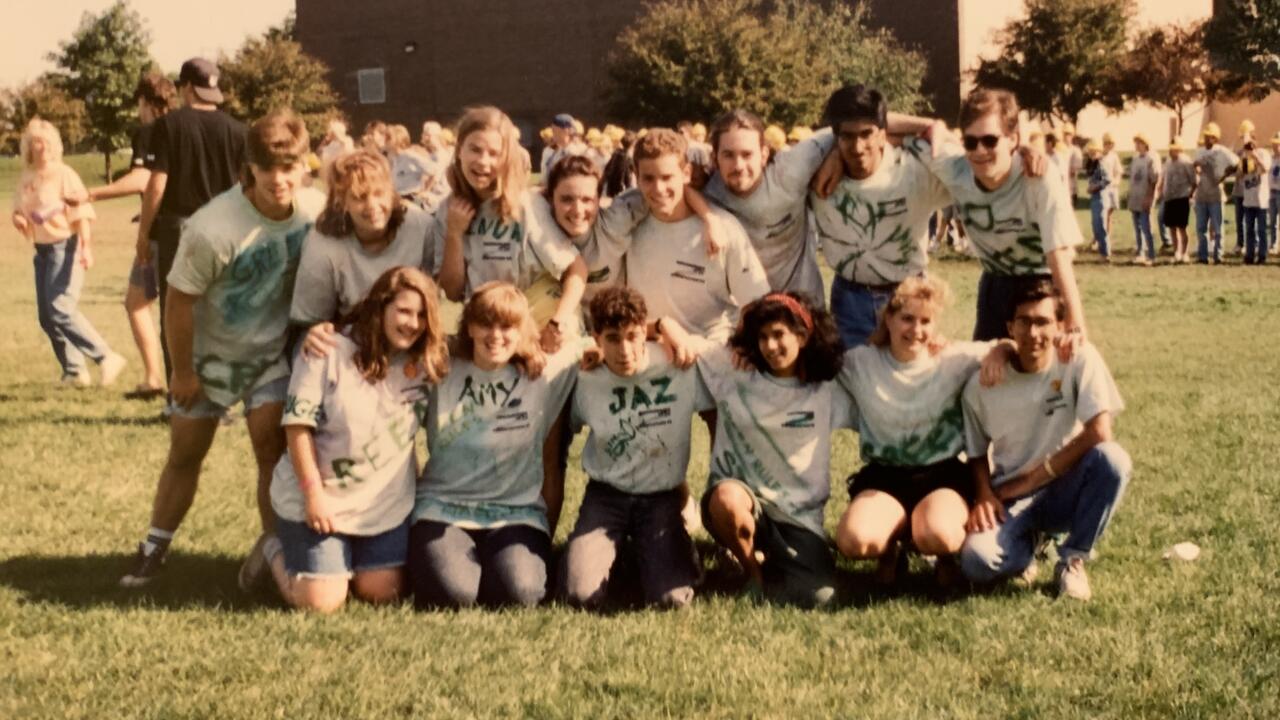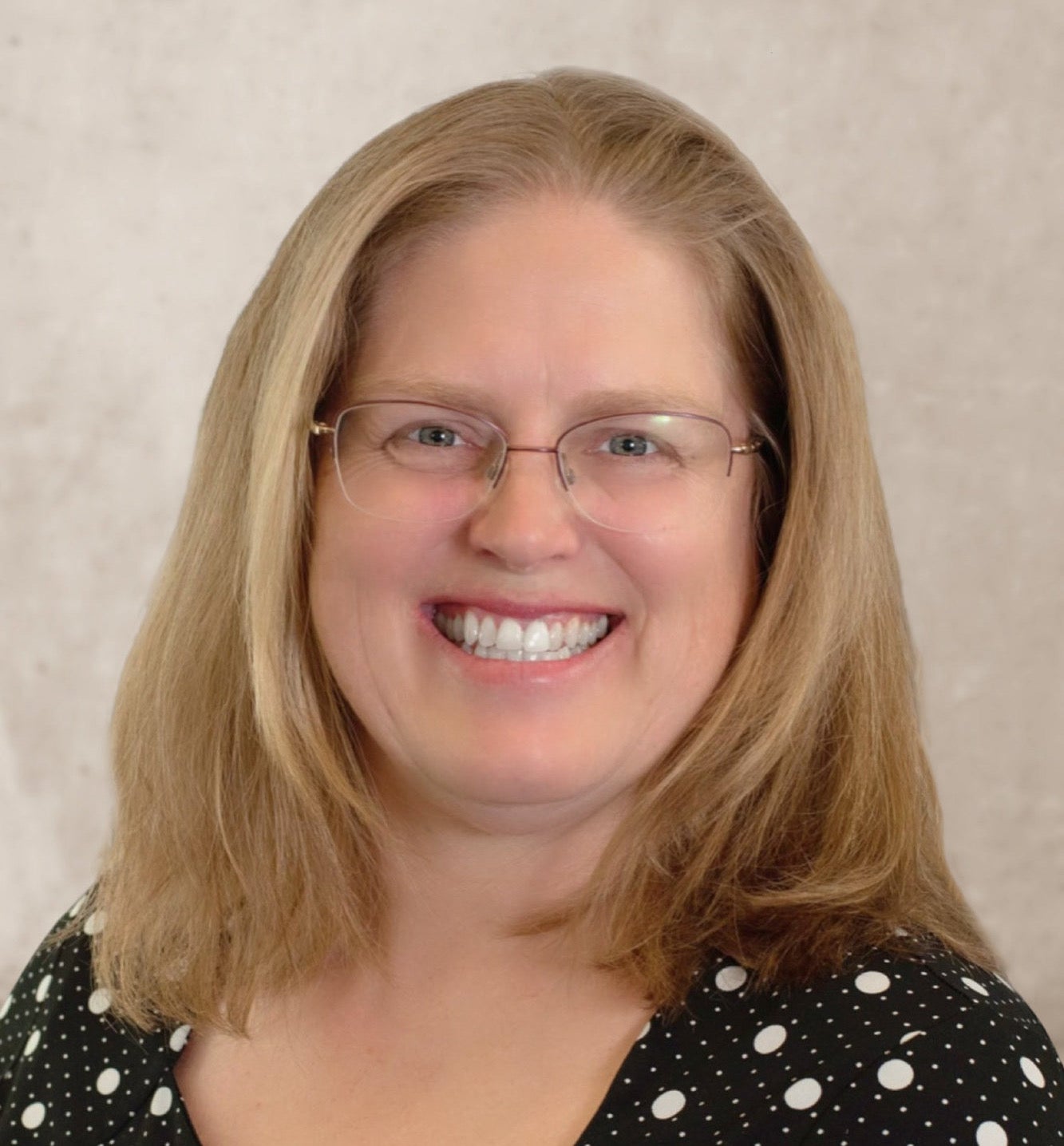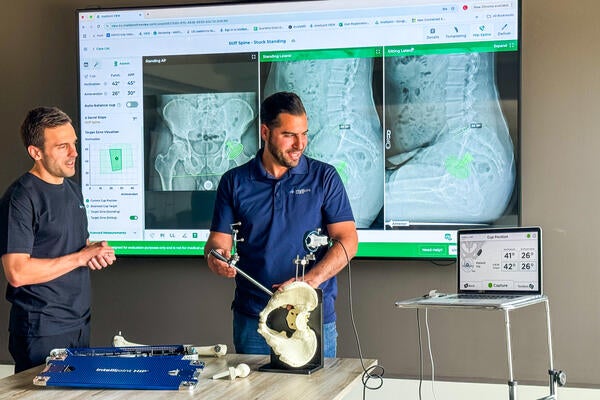
Lifting others up
Student leader turned mentor uses her voice and time to help others succeed

Student leader turned mentor uses her voice and time to help others succeed
By Charlotte Danby Faculty of EngineeringWaterloo Engineering alum Amy Charette (BASc ’94) was going to be an astrophysicist. Her ambition shifted gears on the day she met her first ever mechanical engineer through her high-school’s astronomy co-op program.
“I can’t remember her name — yes, the first mechanical engineer I happened to meet was a woman,” says Charette. “But I hung onto her every word and just knew that mechanical engineering was what I wanted to do.”
Charette began her engineering degree at the University of Waterloo in 1989. She was one of four women students in a class with 76 men which surprised her but didn’t faze her. Nonetheless, the move from high-school to university was challenging. Orientation week helped hugely, introducing Charette to lots of people as well as tons of volunteering opportunities.
“I got involved with EngSoc and put my hand up for leadership roles in my class and at my residence — mainly because I didn’t know anyone. But also because I could. Nothing felt off-limits to me, Waterloo was a very open environment and nothing beat just sitting in POETS — I’d go hang out there on my own and leave with at least two new friends.”
Big sister with a voice
Charette is the oldest of four children and many cousins. From as far back as she can remember, she has always taken on the big sister role, doing what she can to help others.
On December 6, 1989, during Charette’s first term, 14 women — most of whom were engineering students — were murdered at the École Polytechnique de Montréal in an antifeminist mass shooting. This horrific event prompted Waterloo to pay closer attention to its women engineering students to ensure their safety and comfort and led to the formation of the Women in Engineering (WiE) committee.
As a member of WiE, Charette recalls the committee needing students who could speak up openly and directly about how women experience traditionally men-dominated events and environments — as well as confidently discuss possible solutions with University leaders to make these spaces on campus more inclusive. It was a role she was only too happy to take on.
“I wasn’t just an engineering student,” says Charette. “I was a young woman with a voice and I used it to invite others to share theirs too and feel safe doing so.”
Connector, mentor and networker
Charette works as a management consultant for the Poirier Group, focusing on supply chain management, performance analytics and project management. To this day, she maintains a close relationship with WiE and the broader Waterloo Engineering community through her volunteering and mentorship work. As an alumni class representative, she engages with her classmates every five years to encourage them to return to campus and reconnect with friends, share accomplishments and relive memories. Next year is her 30-year reunion and she plans to rally a big crowd.
Her voice as an alum and mentor is just as important as it was during her student days, providing younger women with an experienced perspective on the industry and how to take advantage of its professional opportunities.
 Waterloo Engineering alum, Amy Charette, gives back by volunteering her time and talent.
Waterloo Engineering alum, Amy Charette, gives back by volunteering her time and talent.
“As a woman engineer, helping other women engineers pursue their ambitions is important to me,” says Charette. “Creating community through mentorship, networks and shared experiences provides an invaluable sense of belonging.
"Becoming a mentor wasn’t part of my career assignment, but I’ve always gone beyond what I’ve been assigned to do — if I think it will contribute to the greater good.”
An engineering degree arms graduates with technical proficiency but Charette stresses the importance of other skills such as networking and public speaking, two areas that many students and new professionals haven’t had much experience in thanks to the COVID-19 pandemic. Wherever she can, Charette connects people to her network, identifies relationship-building opportunities and encourages them to attend advantageous events — all to help them build their careers and pursue their passions.
“I think society is better when all individuals are raised up,” says Charette. “So if there’s something I can do to help lift someone up, I’ll do it. And I get back as much as I give, if not more. It’s enormously rewarding.”
Interested in giving back to Waterloo Engineering? There are many ways for you to share your time and talent with your alma mater and enrich the lives of current students and your fellow alumni. Find out how you can get involved.
*Feature image: Amy Charette, bottom row second from left, University of Waterloo first-year orientation, fall 1991.

Read more
Two University of Waterloo affiliated health-tech companies secure major provincial investment to bring lifesaving innovations to market

Read more
Waterloo co-op student applies engineering and tech skills at Caivan to support purpose-built housing and build land-development expertise

Read more
How Doug Kavanagh’s software engineering degree laid the foundation for a thriving career in patient care
The University of Waterloo acknowledges that much of our work takes place on the traditional territory of the Neutral, Anishinaabeg, and Haudenosaunee peoples. Our main campus is situated on the Haldimand Tract, the land granted to the Six Nations that includes six miles on each side of the Grand River. Our active work toward reconciliation takes place across our campuses through research, learning, teaching, and community building, and is co-ordinated within the Office of Indigenous Relations.